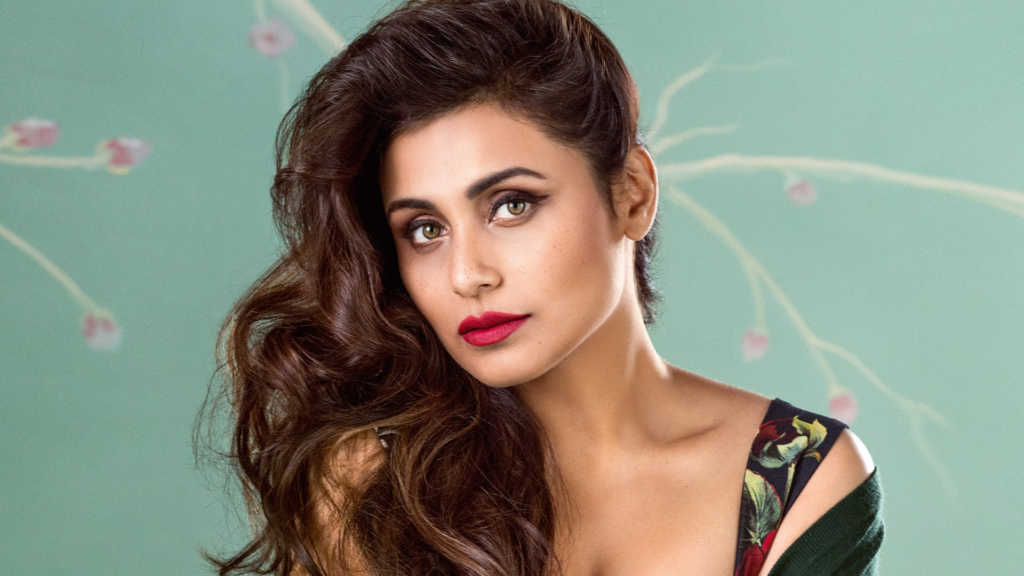In an industry often marked by its fast-paced shifts in fame, Rani Mukerji stands out as a timeless powerhouse. Her versatile talent and passion for storytelling have earned her a lasting place in the hearts of audiences and have cemented her legacy as one of Bollywood’s most enduring and beloved stars.
Early Life and Entry into Bollywood
Rani Mukerji was born on March 21, 1978, into a family with strong film industry roots. Her father, Ram Mukherjee, was a film director, and her mother, Krishna Mukherjee, a playback singer, giving Rani a natural introduction to Bollywood. Despite her family background, she didn’t intend to enter the film industry initially, focusing instead on academics and dance. Her debut in Bollywood came with Raja Ki Aayegi Baraat in 1996, but it was her performance in Kuch Kuch Hota Hai (1998) that truly put her on the map. Her character, Tina, became an iconic part of Bollywood culture, and Rani soon became a household name.

Breakthrough Roles and Iconic Films
Rani Mukerji quickly distinguished herself with a range of powerful performances that reflected her versatility and commitment to her craft. Her roles in Saathiya (2002) and Chalte Chalte (2003) brought her mainstream success, while Yuva (2004) and Hum Tum (2004) showcased her knack for playing layered, relatable characters. However, it was her portrayal of a visually impaired woman in Black (2005) that truly solidified her as one of the most talented actors of her generation. The film earned her numerous awards and praise, marking a high point in her career.
Over the years, Rani continued to take on challenging roles. Her performance in Mardaani (2014) as a fearless police officer fighting against human trafficking was met with acclaim and redefined the portrayal of female leads in Bollywood. Rani reprised the role in Mardaani 2 (2019), continuing to break stereotypes and bringing powerful, socially relevant stories to the screen.
Embracing Meaningful Cinema
Rani Mukerji’s choice of roles has always reflected her strong sense of purpose. Unlike many actors who stick to commercially safe roles, Rani has frequently taken risks to portray complex characters, including a teacher with Tourette syndrome in Hichki (2018). This role brought attention to the challenges faced by people with disabilities and showcased her commitment to meaningful cinema. In Mrs. Chatterjee Vs Norway (2023), Rani delivered another critically acclaimed performance, telling the story of a mother’s fight for her children in a foreign land. Her portrayal resonated deeply with audiences and reminded fans of her unmatched range as an actor.
A Style Icon and Cultural Influence
Beyond her acting prowess, Rani Mukerji has been a fashion icon known for her graceful and sophisticated style. Over the years, she has continued to dazzle with her elegant sarees, statement jewelry, and timeless beauty. Her influence extends beyond the big screen, as she continues to inspire fans with her confidence, individuality, and love for her craft.
The Queen Who Continues to Reign
With over two decades in the industry, Rani Mukerji remains as relevant as ever. Her ability to reinvent herself, her dedication to impactful storytelling, and her commitment to meaningful roles have kept her in a league of her own. As she continues to challenge norms and bring new stories to life, Rani Mukerji serves as an inspiration to aspiring actors and film lovers alike.
Rani Mukerji isn’t just a Bollywood star; she’s a legend whose impact on Indian cinema will continue to inspire for generations to come.